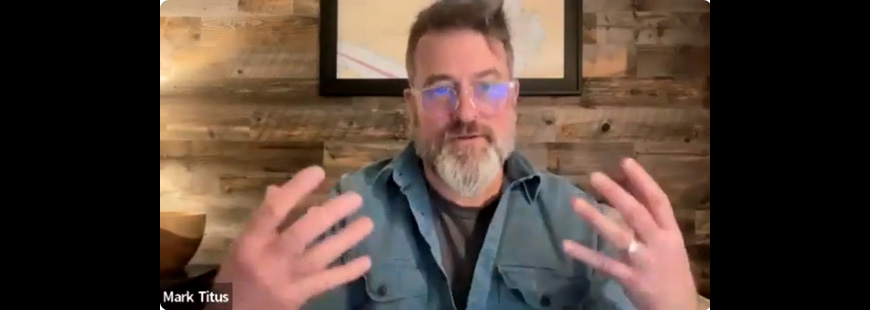Mark Titus joined the Marine Fish Conservation Network for a Waterside Chat on March 26, 2024. Mark’s journey from fly-fishing guide in Alaska’s Southeast to founder of Eva’s Wild is a story of passion for salmon and the future of the planet. Mark wrote and directed The Breach and The Wild, two influential films about salmon and the fight to protect Alaska’s Bristol Bay. His third film, The Turn, shines a light on the “twin-towers of imperative action” for salmon survival: permanent protection of Bristol Bay, and removal of the lower four Snake River dams.
Mark and host Tom Sadler sailed through a wide range of topics, including:
- How a Snoopy rod & reel led Mark to a life of salmon
- How he started at the bottom of the film world to learn how to create his own movies
- Why he considers our destruction of salmon habitat as a breach of our contract with nature (hence the title of his first film)
- Ongoing threats to salmon habitat in Alaska, including more litigation over Pebble Mine and toxic mining chemicals leaching into waters in Canada and flowing into the U.S.
- How Eva’s Wild, his salmon-distribution company, grew out of a food truck that accompanied his film screenings and featured wild Alaska salmon
- How the company gives part of its profits to Indigenous-led efforts to protect and restore salmon habitat, supporting a sustainable economy based on a regenerative resource
- The words of Indigenous leader Billy Frank Jr., who said, “As the salmon go, we go”
- And, of course, much more!
In this episode:
- Connect with Eva’s Wild
- Links to Mark’s projects, including YouTube links for The Breach and The Wild
This Deeper Dive is an extension of the Marine Fish Conservation Network’s Waterside Chat series, which connects people who depend on healthy oceans and fisheries with the issues that directly affect them and their communities. In each episode, Tom Sadler talks with different guests about ocean policy and fisheries management topics. He engages them in genuine and thoughtful conversations about what policy decisions mean for people’s livelihoods, communities, recreation, and coastal ways of life.


